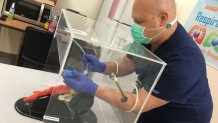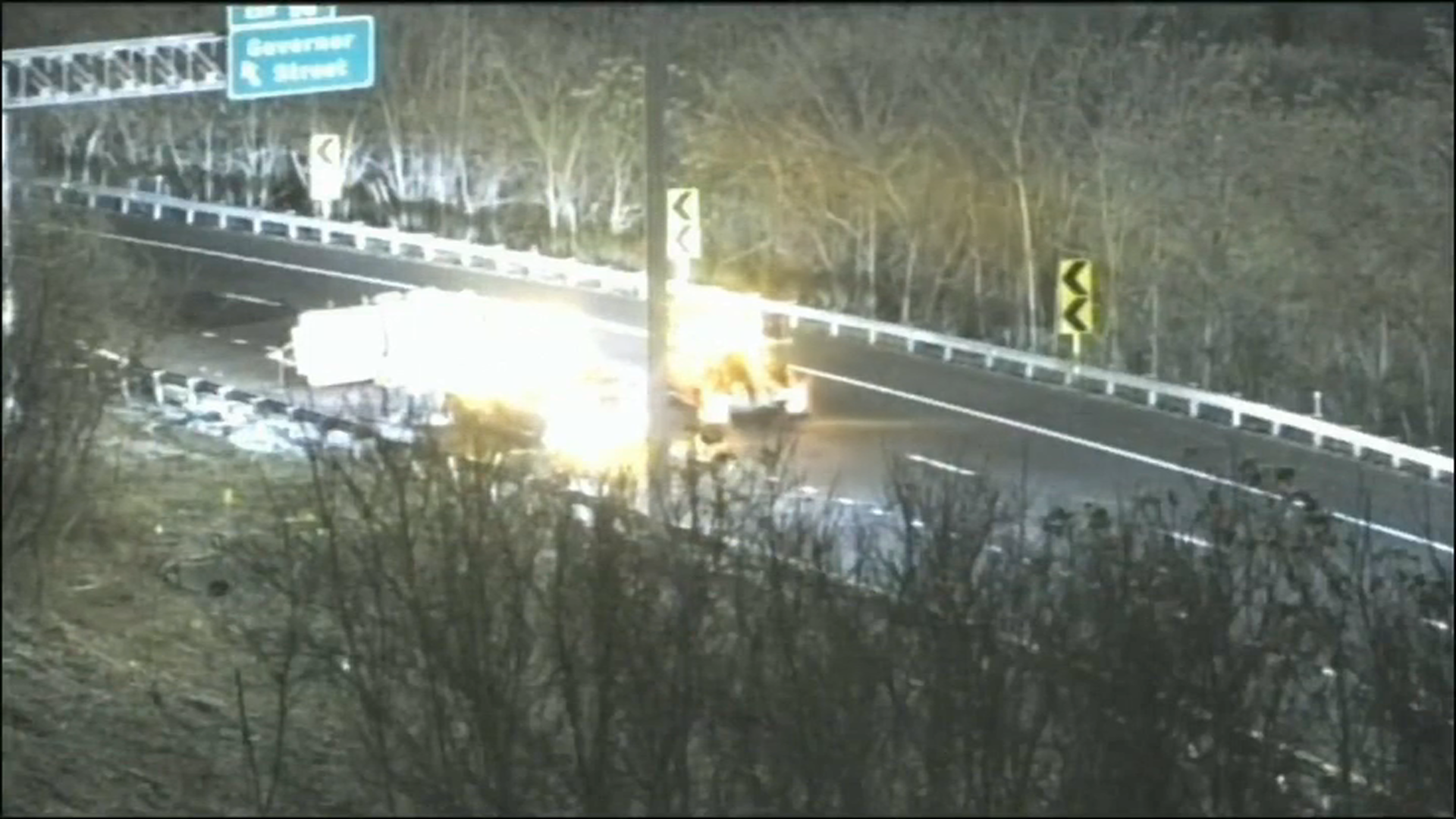Karen Blais hasn’t seen her husband Jerry in 36 days and counting. He was hospitalized at St. Francis in Hartford with a fever and cough on March 25. She said he was put on a ventilator four days later when he developed pneumonia from COVID-19.
“He was very close to death,” she explained.
Jerry did survive though he’s still testing positive for the coronavirus.
“The doctor said he wasn’t even sure if he would ever test negative. They don’t know. They don’t know enough about it,” said Blais.
According to his wife, Jerry has waited to be moved to a long-term care facility for a week.
“He can’t get up. He can’t move his legs. He needs rehab,” she explained.
Right now, just two Connecticut rehab centers are taking COVID-19-positive patients. However only one, Gaylord Hospital, will take those with tracheotomies. The other, Hospital for Special Care in New Britain, is not.
“Why are they allowed to say we’re not going to take them, when we have all these people that need places?" Blais questioned.
Dr. Brenda Nurse, the chief of infectious diseases at Hospital for Special Care said a wing of the facility was retrofitted for COVID-19 positive patients. She said they are focused on therapy.
“We really took the stance that the real need that we saw and that we were really being asked for was rehabilitative services,” Nurse stated.
Blais said her husband is now on the waiting list at Gaylord Hospital but she also said it’s just too hard to predict when a bed might open up for Jerry.
According to the vice-president of Gaylord Hospital, Dr. Steve Holland, even after increasing their capacity to 130 beds, there were still 38 people on their waiting list.
“Connecticut is just not stepping up to the plate. So, now we’re looking out of state,” said Blais. “There’s been no emphasis on recovery.”
The couple, which celebrated their 39th wedding anniversary apart while Jerry sat in a hospital bed, is frustrated.
“They’re refusing to care for patients based on their diagnoses. If a person had AIDS and they said we’re not going to treat you because you have AIDS well there would be a public outcry,” she pointed out.
Holland said significant precautions must be taken with trach patients.
“Any kind of procedure that creates aerosolization of COVID makes it very contagious and it goes much further than the typical six-foot radius,” Holland explained. “A single droplet can carry a significant load of the virus that makes it so contagious."

Blais hopes more hospitals around the state start to focus their efforts on patients like her husband, who’ve survived but still have a long road to recovery.
“The quicker he gets the rehab the quicker he can get home,” said Blais.
NBC Connecticut reached out to Saint Francis Hospital to find out how many of its patients are waiting to be released to rehab facilities. A spokesperson for the hospital declined to comment citing patient confidentiality.



